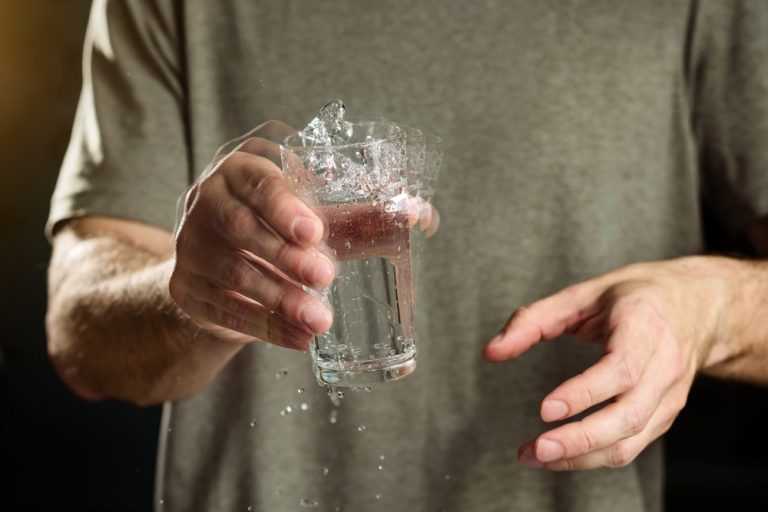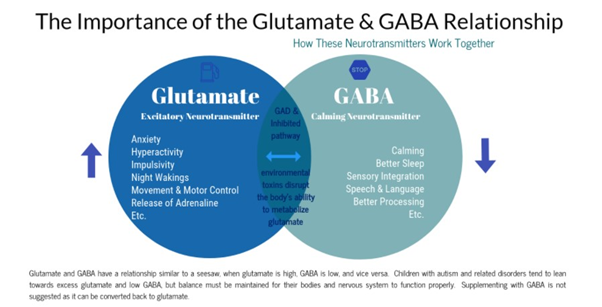Waking up with the shakes after a night out is no fun. These “hangover shakes” are a common sign you’ve had too much to drink. They happen when your brain chemistry gets out of whack. Alcohol disrupts your nervous system, which leads to those shaky hands. Excessive alcohol consumption can lead to severe hangover symptoms, including shakes.
This blog explains why those shakes happen and how to feel better.
So, let’s get into it, shall we?
What are Hangover Shakes?
Hangover shakes, also known as alcohol tremors or alcohol shakes, are those annoying, involuntary tremors that can hit you after a night of excessive alcohol consumption. You might notice your hands shaking, your limbs quivering, or even a general feeling of tremors throughout your body. These shakes are a physical sign of alcohol withdrawal symptoms and can be a red flag indicating that your body is struggling to cope with the aftereffects of drinking alcohol.
When you consume too much alcohol, your nervous system gets thrown off balance. As your body starts to process and eliminate the alcohol, it can lead to these unsettling shakes. If you find yourself regularly experiencing hangover shakes, it might be a sign of a drinking problem. People with a history of anxiety may also find that their hangover shakes are more pronounced. It’s your body’s way of telling you that it’s time to take a closer look at your alcohol consumption habits.
Why Do Hangover Shakes Happen?

There are many reasons why these happen. Let’s explore some common ones.
Your Brain's Chemistry is Off
Alcohol disrupts the delicate balance of neurotransmitters in your brain, the chemical messengers that control everything from your mood to your movements. Two key players in this scenario are GABA (gamma-aminobutyric acid) and glutamate.
GABA is the brain’s primary “chill-out” chemical, responsible for calming nerve activity and promoting relaxation. Alcohol enhances GABA’s effects, making you feel sedated and less inhibited. And Glutamate is the brain’s “get-up-and-go” chemical. It excites nerve cells and is involved in learning and memory. Alcohol increases glutamate activity, contributing to that sluggish feeling.

When alcohol wears off, your brain tries to regain its balance. It does this by increasing glutamate activity and decreasing GABA sensitivity, hitting the gas pedal while releasing the brake. This rebound effect can lead to overexcitation in the brain, resulting in those familiar tremors.
You're Dehydrated
Alcohol is a potent diuretic, meaning it increases urine production. When you drink, you lose more fluids than you take in. That leads to dehydration. This dehydration has a knock-on effect on your electrolyte balance. Electrolytes are minerals like sodium and potassium crucial for nerve and muscle function.
When you’re dehydrated, your electrolyte levels get thrown off. This imbalance disrupts the electrical signals that control muscle contractions, leading to involuntary twitching and tremors.
Low Blood Sugar Levels
Your liver is the main thing in regulating blood sugar levels. However, when you drink alcohol, your liver prioritizes breaking down the alcohol over its other tasks, including maintaining stable blood glucose. This leads to a dip in blood sugar, also known as hypoglycemia.
Since glucose is the primary energy source for your brain and body, low blood sugar causes a range of symptoms, including weakness, fatigue, and yes, those shaky hands. It’s similar to how you might feel if you’ve skipped a meal or gone too long without eating.
Poor Sleep
While a few drinks might make you feel drowsy initially, alcohol disrupts your sleep cycle later in the night. It interferes with REM sleep, the stage of sleep associated with dreaming and memory consolidation. This disrupted sleep can leave you feeling groggy and fatigued the next day, increasing any tremors you might be experiencing.
As you know. your brain needs quality sleep to repair and recharge. When alcohol interferes with this process, it leaves you feeling “off” and more susceptible to the physical effects of a hangover, including the shakes.
Nutrient Deficiencies
Heavy drinking can interfere with your body’s ability to absorb essential nutrients, including vitamins and minerals. These nutrients are crucial for nerve function, muscle health, and overall well-being.
When you’re deficient in key nutrients, your body becomes less resilient and more susceptible to the negative effects of alcohol. This can contribute to overall weakness and make those hangover shakes more pronounced.
Your Body is in Alcohol Withdrawal
For people who drink regularly, hangover shakes can be a mild form of alcohol withdrawal. When your body becomes accustomed to having alcohol consistently, it starts to rely on it to function “normally.” This can lead to alcohol use disorder, where regular drinking results in dependency and withdrawal symptoms when you suddenly stop drinking. Your body goes through an adjustment period as it tries to re-regulate itself.
The shakes are a common symptom of this withdrawal process, as your nervous system reacts to the absence of alcohol. While hangover shakes are typically mild and temporary, they can be a warning sign for more severe withdrawal symptoms in people with alcohol dependence.
Individual Factors
Everyone metabolises alcohol differently, and a variety of individual factors can influence how your body reacts to a night of drinking. These factors include.
● Genetics: Some people are genetically predisposed to experience more severe hangovers.
● Overall health: If you’re already dealing with health issues, you may be more susceptible to hangover symptoms.
● Amount and type of alcohol: The more you drink, the more likely you are to experience hangover shakes. Different types of alcohol can also have varying effects.
● Tolerance: People who drink regularly may develop a tolerance to alcohol, meaning they need to drink more to feel the same effects. However, this doesn’t make them immune to hangovers or the shakes.
Understanding Alcohol Withdrawal Symptoms
Alcohol withdrawal symptoms occur when your body is suddenly deprived of alcohol after a period of heavy drinking. These symptoms can range from mild to severe and can include hangover shakes, tremors, anxiety, insomnia, and nausea. Essentially, your body gets used to the constant presence of alcohol, leading to changes in brain chemistry and function. When you suddenly stop drinking, your body has to readjust, and this can result in a range of uncomfortable symptoms.
Understanding alcohol withdrawal symptoms is crucial for recognizing the signs of a drinking problem. If you’re experiencing hangover shakes along with other symptoms like anxiety or insomnia, it might be time to seek help. Severe alcohol withdrawal symptoms, such as confusion, hallucinations, or seizures, are serious and require immediate medical attention. By being aware of these symptoms, you can take steps to avoid excessive alcohol consumption and seek support if needed.
PCP - Get help with your addiction to alcohol drugs gaming gambling codependency
How to Recognise Alcohol Tremors
Hangover shakes are so painful. But how can you tell if what you’re experiencing is just a normal hangover tremor or something more serious? Let’s discuss this.
Typical Symptoms
Excessive drinking often leads to hangover shakes, which are characterized by uncontrollable trembling or shaking — usually most noticeable in your hands. These tremors can also affect other parts of your body, like your arms, legs, and even your eyelids.
The intensity of the shakes can vary. Some people experience mild trembling, while others might have more pronounced shaking that makes everyday tasks difficult. They usually kick in within a few hours of your last drink, as your body starts to process the alcohol and go into “withdrawal” mode.
Associated Symptoms
Hangover shakes rarely show up solo. They often come with a posse of other classic hangover symptoms, such as.
● Headache: That pounding headache is your brain’s way of saying it needs some TLC (and hydration!).
● Nausea and vomiting: Your stomach is feeling the effects of the alcohol too, and it might be trying to get rid of any lingering toxins.
● Fatigue: Alcohol disrupts sleep, leaving you feeling drained and exhausted.
● Anxiety: Alcohol can mess with your brain chemistry, leading to feelings of anxiety and unease.
● Sensitivity to light and sound: Everything seems louder and brighter when you’re hungover, making it hard to relax.
If you’re experiencing a combination of these symptoms along with the shakes, it’s a pretty good indicator that you’re dealing with a classic hangover.
Differentiating from Other Conditions:
While hangover shakes are usually harmless and temporary, it’s important to be able to distinguish them from other conditions that can also cause tremors. Here are a few to keep in mind.
● Essential tremor: This is a neurological condition that causes involuntary shaking, often in the hands. Unlike hangover shakes, essential tremors are persistent and not related to alcohol consumption.
● Parkinson’s disease: This is a progressive neurodegenerative disorder that can cause tremors, stiffness, and slow movement. Seek medical attention if you have concerns about Parkinson’s disease.
● Alcohol withdrawal syndrome (delirium tremens): This is a severe form of alcohol withdrawal that can occur in people with alcohol dependence. It can cause severe tremors, confusion, hallucinations, and seizures. This is a serious medical emergency and requires immediate treatment. Severe symptoms like confusion, hallucinations, and seizures require immediate medical attention.
How to Cope with Hangover Shakes
Waking up with your body trembling after a night of drinking is a bumpy experience. While those hangover shakes are usually temporary, they can definitely put a damper on your day. But don’t worry, there are ways to ease those tremors and get yourself back on track.
Rehydrate and Replenish
Dehydration is a major culprit behind hangover shakes. To counteract this, start by drinking plenty of water throughout the day. Aim for at least 8 glasses to help your body rehydrate. But plain water isn’t always enough.
You’ll also want to replenish those essential minerals like sodium and potassium. Reach for electrolyte drinks like sports drinks or coconut water. The broth is another great option, as it provides both fluids and electrolytes in a soothing form. In severe cases of dehydration, intravenous (IV) therapy might be necessary. This delivers fluids and electrolytes directly into your bloodstream for rehydration.
Lorem ipsum dolor sit amet, consectetur adipiscing elit. Ut elit tellus, luctus nec ullamcorper mattis, pulvinar dapibus leo.
Nourish Your Body
When you drink alcohol, your liver focuses on breaking it down, which can distract it from its other important job — regulating your blood sugar. This leads to dips in energy that can worsen tremors. Eating nutrient-rich foods can help stabilize your blood sugar and provide your body with the fuel it needs to recover.
Start your day with a balanced breakfast that includes protein, complex carbohydrates, and healthy fats. Think eggs with whole-grain toast, oatmeal with fruit and nuts, or a smoothie with protein powder and spinach.
When to Seek Medical Attention for Hangover Shakes
Hangover shakes are usually nothing to worry about. They’re a temporary nuisance that fades as your body recovers from a night of drinking. But sometimes, those tremors can be a sign that something else is going on. And in these situations getting medical attention is important. So, let’s discuss these situations.
Persistent or Severe Shakes
If those shakes are sticking around longer than expected, it’s time to pay attention. Most of the time, hangover shakes subside within 24 hours. If they persist beyond that or if they’re particularly intense and interfering with your daily activities, it’s a good idea to see a doctor.
Accompanying Symptoms
If you’re experiencing confusion, hallucinations, a high fever, or seizures, seek immediate medical attention. These could be signs of alcohol withdrawal syndrome, a serious condition that requires prompt treatment. Don’t hesitate to head to the nearest emergency room or call for medical help if you’re concerned about these symptoms.
History of Alcohol Dependence
Be vigilant if you have a history of heavy drinking or alcohol dependence. In these cases, your body might react more strongly to the absence of alcohol, leading to more severe withdrawal symptoms, including delirium tremens. This is a serious medical condition that can be life-threatening if not treated promptly.
In Summary
Hangover shakes are a common reminder that you might have overdone it the night before. They happen because alcohol throws your brain and body out of whack — messing with things like your brain chemicals, fluid balance, and sleep.
While those shakes are annoying, they’re usually temporary, and plenty of things you can do to feel better, like rehydrating, eating good food, and getting some rest.
But most importantly, listen to your body. If those shakes are sticking around too long, don’t hesitate to reach out to a doctor. Taking care of yourself is the best way to avoid those post-party jitters and keep your hands steady.
Author
-
Dr Otulana is PCP’s longest-serving doctor. He is an experienced Physician with Specialist Interest in Substance Misuse Management and he has a wide range of experience in the assessment and management (including detoxification) of clients with various drug and substance addiction problems. Dr Otulana started practising as a doctor in 2000 and with over 10 years as an Addiction Physician. He is an Advanced Addiction Practitioner Member of Addiction Professionals and also holds the Certificate in Clinical Psychopharmacology (Part 1) of the British Association for Psychopharmacology. He is additionally a strong healthcare services professional with a Master of Business Administration (M.B.A.) degree from Cambridge University Judge Business School.
View all posts








